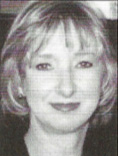Ireland is no stranger to the Nobel Prize. Indeed the prize awarded each year in memory of Alfred Nobel (the inventor of dynamite) has gone to citizens of the island a total of seven times.
W.B. Yeats (1923), G.B. Shaw (1925), Samuel Beckett (1969) and Seamus Heaney (1995) all won the Nobel Prize for Literature. But good writers aside, the Nobel Committee has also focused on Ireland in the area of conflict resolution. Perhaps with more optimism than realism, the Nobel Committee awarded the Peace Prize to Ireland a total of three times.
Sean MacBride (the son of Maude Gonne MacBride who served as inspiration for so much of Yeats’ poetry) received the Nobel in 1974 for his role in promoting peace and justice worldwide.
As a young man MacBride took part in the struggle for Irish independence (at 16 he was a lieutenant to Michael Collins). He stood on the side of the Treaty that ultimately led to the 26 counties of Ireland becoming a Republic (in 1949), but left us with the Border and the situation we have in the North today.
In 1984 the Peace Prize was awarded to the co-founders (one Catholic, one Protestant) of the Community of Peace People in Belfast — Mairead Corrigan and Betty Williams. Shortly thereafter the organization (formed after the deaths of the three Maguire children, killed by a car which careened out of control when its driver, an IRA man, was shot by the British army) collapsed, falling to political and community pressure. The relationship between the two women ended in acrimony.
Which brings us to 1998 and the Nobel Peace Prize going once again to two Northerners — one Protestant, one Catholic — David Trimble and John Hume.
SDLP leader John Hume has for 30 years dedicated his life to the people of the North, taking a non-violent approach. David Trimble, whom Northern writer Eamon McCann described as having won the “lottery without having bought a ticket,” hasn’t always shown himself to be in favor of peace. Yet, he has shown bravery for his willingness to broker a settlement which his critics saw as a sellout. He was also the first Unionist leader to set foot in the Dublin government buildings since partition, and the first Unionist to talk to an Irish Prime Minister in 30 years.
Very large steps given the complexity of the Northern problem as so vividly explained by poet Seamus Heaney.
In his lecture to the Nobel Committee in 1995, Heaney said: “The crux of the problem involves an ongoing partition of the island between British and Irish jurisdictions, and an equally persistent partition of the affections in Northern Ireland between the British and Irish heritages. Surely every dweller in the country must hope that the governments involved in its governance can devise institutions which will allow that partition to become a bit more like the net on a tennis court, a demarcation allowing for agile give-and-take, for encounter and contending, prefiguring a future where the vitality that flowed in the beginning from those bracing words `enemy’ and `ally’ might finally derive from a less binary and altogether less binding vocabulary,”
As we go to press the news that, after months of stalling, cross-Border bodies have been agreed upon gives us hope that we are closer to the poet’s vision of Ireland. But there is still a long way to go in ratifying the terms of the historic Good Friday Agreement that brought the Nobel honor to Hume and Trimble.
The New Year will bring the greatest challenges of all — decommissioning of weapons, the reform of policing in Northern Ireland, and the setting up of the new government.
Let us hope that the new Nobel Laureates will continue to find the courage to live up to the responsibility that comes with the Nobel honor. And that our small island will become a beacon of hope for people in every conflict-ridden part of the world who, because of the publicity of the Nobel, will be looking to Ireland for guidance.
Mortas Cine.
Editor’s Note: This article was originally published in the February / March 1999 issue of Irish America.


Leave a Reply